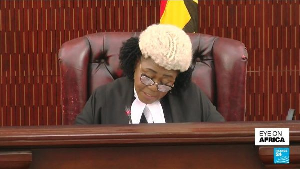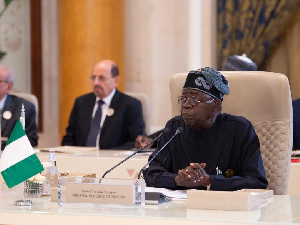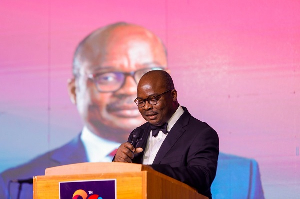The court’s ruling on the suit filed by one of the shareholders of uniBank, Dr. Kwabena Duffour, will redefine how regulatory bodies exercise their mandate in the country, a legal practitioner and law lecturer at the University of Professional Studies, Accra, has said.
Dr. Duffour on Monday filed a suit against the Bank of Ghana requesting an order of mandatory injunction requiring the central bank (defendant) to restore UniBank to private management and shareholding.
The suit also requested an order of injunction restraining the defendant from “arbitrarily and capriciously impairing almost the entire loan book, including debts of government and quasi-government institutions and shareholders’ advances in the accounts of UniBank to justify its purported revocation of the licence of the bank”.
Any ruling on the suit, lawyer Adagewine said, will define to what extent regulatory bodies in the country can exercise their power in carrying out their duties.
“The question is, in this particular matter, whether or not the Bank of Ghana acted in a way that can be said to have violated the standards required by Article 23 of the constitution.
“For the banking sector and for the conduct of regulated business generally, the resolution of that question will be very significant and instructive. Because if you look at Article 23 of the 1992 constitution, it enjoins the administrative entities to act reasonably and in accordance with law; and that any individual who is aggrieved by the exercise of administrative powers should seek a redress,” he said.
He further stated that the ruling will have a big impact on the banking sector, as investors are watching closely to observe how the court will ensure a fair balance in the case.
“The ruling will clarify whether or not the Bank of Ghana or any regulator of a business activity in Ghana can act arbitrarily in the discharge of its regulatory function.
“And if the court comes out to say that the Bank of Ghana acted arbitrarily or didn’t have the right to act, then what it will mean is that it has set a positive standard for the conduct of business and regulatory business – and that will be fine for the banking sector. Investors are watching what the court will say. We need to ensure a fair balance between private business interest and public interest,” he added.
The suit in detail
In the statement of claim presented by Prof. Raymond Atuguba, lawyer for the plaintiff – Dr. Duffour and Integrated Properties Limited – the plaintiff is asking for: An order of injunction restraining the defendant from expropriating UniBank by its purported vesting of “good assets and liabilities” of UniBank in Consolidated Bank Ghana Limited and the revocation of the licence of UniBank; A declaration that the licence purportedly granted to the Consolidated Bank Ghana Limited was not granted in accordance with Act 930 and is null and void.
It is also seeking a declaration that deposits of depositors cannot be lawfully vested in Consolidated Bank Ghana Limited; an order of injunction restraining the defendant from arbitrarily and capriciously impairing almost the entire loan book, including debts of government and quasi-government institutions and shareholders’ advances in the accounts of Unibank to justify its purported revocation of the licence of the bank; and a declaration that the purported revocation of the licence of Unibank is null and void, being in breach of Article 23 and 296 of the 1992 Constitution of the Bank of Ghana.
The other two declarations being sought are: A declaration that the purported revocation of the licence of Unibank constitutes unlawful expropriation of the property of the plaintiff and other shareholders of Unibank, in view of Article 18 and 20 of the 1992 Constitution of the Republic of Ghana; An order of mandatory injunction requiring the defendant to restore Unibank to private management and shareholding; and any other reliefs which the honourable court deems fit or considers just.
Business News of Friday, 24 August 2018
Source: thebftonline.com

















